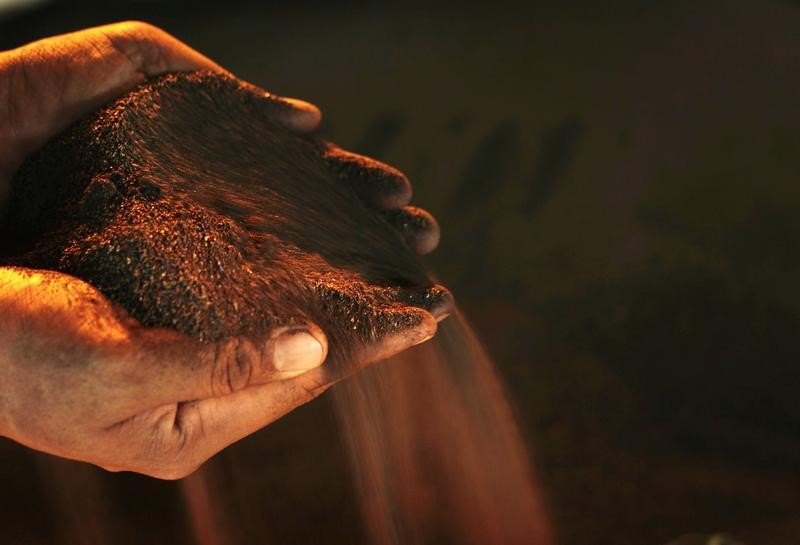(Repeats column published earlier with no changes to text. The opinions expressed are those of the author, a columnist for Reuters.)
By Clyde Russell
LAUNCESTON, Australia, Aug 25 (Reuters) - Is nickel's current rally sustainable or is the metal merely having a strong run because market participants are more focused on the environmental crackdown in top ore miner the Philippines, rather than on the surge in Indonesian ferronickel exports?
No doubt nickel is one of the strongest commodity performers this year, with benchmark London futures CMNI3 rising 13.3 percent from the end of last year to the close on Wednesday.
The bulk of that rally has come in the past three months as new Philippine President Rodrigo Duterte and his hard-line environment secretary Regina Lopez cracked down on alleged environmental abuses by the mining industry. least eight nickel mines have been shut down in the Philippines this year, cutting around 10 percent of the country's capacity.
The Chamber of Mines of the Philippines has called the closure of mines a "demolition campaign", but Lopez appears undeterred, saying more mines will be shut if they are having adverse impacts on the environment.
Certainly, it seems that lower Philippine nickel ore exports are already showing up in the import numbers for China, the world's biggest buyer of the metal that is used mainly in the manufacture of stainless steel and electronics.
China imported 3.163 million tonnes of nickel ore and concentrates from the Philippines in July, down 35.9 percent from the same month a year ago, according to customs data. in the first seven months totalled 13.84 million tonnes, a drop of 27.3 percent from the same period last year.
This is significant as the Philippines is by far and away the largest supplier of nickel ore to China, accounting for almost 96 percent of the total for January-July.
This means that if there is a sustained drop in supply from the Philippines it will be hard for Chinese nickel pig iron producers to source replacement material.
This is especially true as nickel ore cargoes from Indonesia, which used to be China's top supplier, remain unavailable as part of that country's ban on the export of certain unprocessed minerals, such as nickel and bauxite.
INDONESIA'S NICKEL SWITCH
Indonesia's shipments of nickel ore came to an abrupt halt in early 2014 after the Southeast Asian nation enacted a mineral export ban as part of efforts to ensure investment in domestic downstream processing plants.
It may also be that this effort is starting to show up in China's import figures, with a large jump in shipments of ferronickel, an intermediate stage of the metal that contains both nickel and iron.
China's imports of ferronickel from Indonesia were 74,493 tonnes in July, more than five times taken in the same month a year earlier.
Likewise, year-to-date imports from Indonesia have surged more than four-fold to 390,706 tonnes, giving the nation a 70 percent share of Chinese imports of ferronickel.
This surge in imports of ferronickel is significant as it shows that the way China gets its nickel is changing.
Indonesian nickel producer PT Antam says on its website that it extracts about one tonne of ferronickel from between 70 and 80 tonnes of nickel ore.
If these figures are assumed to be representative of Indonesia's ferronickel production as a whole, it means the country's ferronickel exports to China in the first seven months of the year are roughly equivalent to 27.3 million tonnes of nickel ore.
This is more than double the amount of nickel ore exported to China from the Philippines, providing proof that China isn't importing less nickel, but is changing the form in which it imports the metal.
The Indonesian ore export ban of early 2014 led to a 50 percent spike in London nickel prices from January to a peak of $21,625 a tonne on May 13 that year.
But as the market came to realise that there was sufficient nickel ore elsewhere to compensate for lost Indonesian output, prices slumped to a low of $7,550 a tonne on Feb. 12 this year.
While the current disruptions in the Philippines have no doubt tightened the market for nickel ore, it's more than likely that the ramp up of ferronickel exports from Indonesia are more than sufficient compensation for the overall nickel market.
The difficulty in sourcing nickel ore is certainly a problem for China's nickel pig iron producers, but their problems don't necessarily translate into a shortage of nickel in the global market, especially if Indonesia is back in the market as a ferronickel supplier.
<^^^^^^^^^^^^^^^^^^^^^^^^^^^^^^^^^^^^^^^^^^^^^^^^^^^^^^^^^^^ Graphic of China's imports of Indonesian ferronickel vs Philippine nickel ore
http://tmsnrt.rs/2bGXdbN
^^^^^^^^^^^^^^^^^^^^^^^^^^^^^^^^^^^^^^^^^^^^^^^^^^^^^^^^^^^> (Editing by Tom Hogue)
